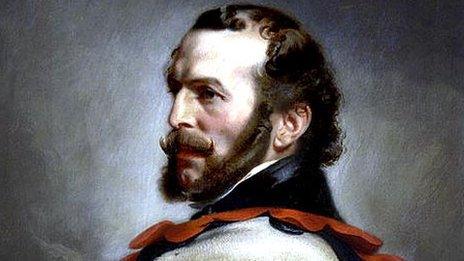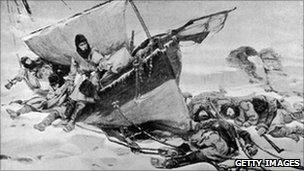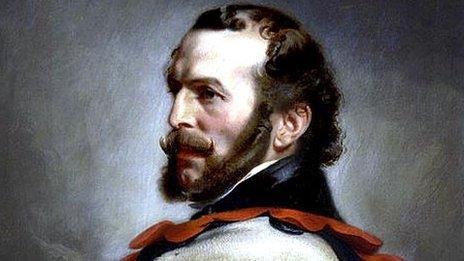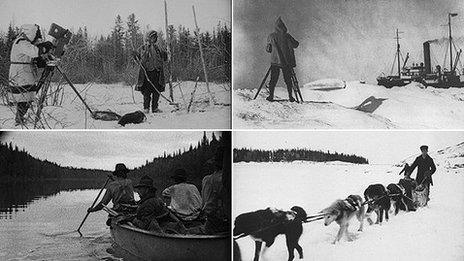Campaign to recognise Orkney explorer Dr John Rae takes step forward
- Published

Dr John Rae charted huge areas of unmapped territory
A campaign to recognise one of Scotland's great forgotten explorers has taken a significant step forward.
Orkney's Dr John Rae is credited with finding the final part of the north west passage, around the top of North America.
Born in 1813, he ended up being shunned by much of Victorian society, due to claims he reported about cannibalism.
Permission has been granted for a plaque to be created in Westminster Abbey commemorating his achievements.
Dr Rae signed up with the Hudson's Bay Company - when the fur trade in Canada at its peak - and charted vast areas of unmapped territory using his surveying skills.

Capt Sir John Franklin and his entire crew died in the frozen Arctic
It was in his search for traces of Capt Sir John Franklin's ill-fated expedition of 1845 - when he and his entire crew died - that Dr Rae found himself condemned to obscurity.
In 1854, he had recorded accounts from local Inuits, who said that some of Franklin's crew had resorted to cannibalism in a last desperate effort to stay alive.
He reported his findings in confidence to the British admiralty - but they appeared in a newspaper.
Franklin's widow - and much of Victorian society - was horrified at some of Dr Rae's findings.
His reputation never recovered.
The controversy overshadowed the fact that, during his searches for the Franklin expedition, Dr Rae had mapped out a navigable shipping route linking the north Atlantic to the Pacific.
He died, in relative obscurity, in 1893.
Canada's native Cree called him 'Aglooka' - meaning 'he who takes long strides'.
A statue of Dr Rae was unveiled on the Stromness harbour front in Orkney last year.
- Published29 September 2013

- Published27 September 2013

- Published21 January 2012

- Published21 July 2010